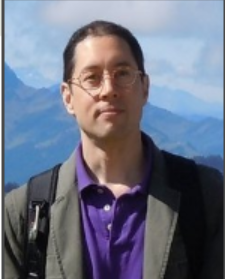非常抱歉,
你要访问的页面不存在,
非常抱歉,
你要访问的页面不存在,
非常抱歉,
你要访问的页面不存在,
验证码:

职称:CHAIR AND ASSOCIATE PROFESSOR (CHINESE)
所属学校:Georgetown University
所属院系:Department of East Asian Languages & Cultures
所属专业:Chinese Language and Literature
联系方式:+1 202-687-6223
Ph.D. (1995) Stanford University, Asian Languages: Chinese M.A. (1987) Stanford University, East Asian Studies B.A. (1983) Harvard University, English and American Literature and Language
Within Georgetown's Chinese program I teach courses on pre-modern Chinese literature and Classical Chinese language, and advanced modern Chinese language, and I sometimes teach the Chinese Senior Seminar and the introductory East Asia: Texts and Contexts course for new Chinese and Japanese majors. My "Chinese Literary Dream Texts" explores Classical Chinese texts that recount or interpret dreams, that explain the origins of dreams, or that use dreams as a literary framing device. "War and its Legacies in Chinese Literature" uses texts in English translation to trace this history of Chinese portrayals of warfare, soldiers, civilian suffering, the dead, and the moral implications of military conflict. "Reading Chinese Landscapes" explores Chinese landscape painting, landscape poetry, and travel essays, using English language materials. As a college English major it occurred to me that the field of English literature would scarcely notice my departure, whereas if I just learned Chinese (how hard could it be?) I would have access to a mind-bogglingly vast and rich literary tradition about which relatively little had been written in English and which would force me to rethink all my assumptions about what literature is. So I started taking Chinese right after graduation, found I was reasonably good at it, went on to graduate school, spent a couple of years in Taipei, taught for a while at Grinnell College and Wellesley College, and have been on the faculty here at Georgetown since 1997. My recent book, In Limpid Dream: Nostalgia and Zhang Dai's Reminiscences of the Ming (EastBridge, 2007), concerns Classical Chinese essays in which a certain profligate Shaoxing literatus named Zhang Dai (1597-1684?) seeks to capture in a series of nostalgic prose fragments the charmed life he led before the Ming dynasty fell to the Manchus in 1644. I am always interested in how people create personas for themselves by describing remembered fragments of the places where they have lived--an interest which sometimes even surfaces in the essay assignments I give my third-year language students. My book and subsequent projects have explored the links between self, personal memory, and public memory, as well as the differences in the way architecture houses memory in Chinese and Western memoirs. My current research project examines an elaborate miscellany (biji) by the sixteenth-century official and author Zhang Han. Zhang's book begins geographically, following his official postings in the four quarters of the empire; it then spirals down through intermediate categories (craftsmen and merchants, flora and fauna), all the way to unusual things heard, and dreams while sleeping. I am looking at it as a particularly clear attempt by one author to locate himself and his personal perception within a large and complex world--or alternatively, to build a comprehensive world structure from the point of view of a self's experience. I have a back-burner project collecting late imperial first-person accounts of dreams in order to explore how the personal experience of dream intersected with the prevailing notions of dream interpretation, of dream as path to parallel realms of existence, and with the late-imperial obsession with dream as structuring literary device. I am interested in attitudes toward the supernatural, dreams, and human perception in the prose writings of Song dynasty authors Su Shi (1037-1101) and Shen Kuo (1031-1095). On the far back burner is another project on the language in which musical performance was discussed in late-imperial China. Most of my hobbies have to do with amateur music-making. At various times I have been a kid pianist, a fifer, an community orchestra clarinetist, an ensemble singer (in a glee club, early music ensembles, and a choir specializing in Latin American music), and very briefly a choir conductor. I seem to collect simple woodwind instruments (fife, recorder, pennywhistle, dizi, bawu, xiao, hulusi, six-hole irish flute, various ocarinas), some of which I can play.